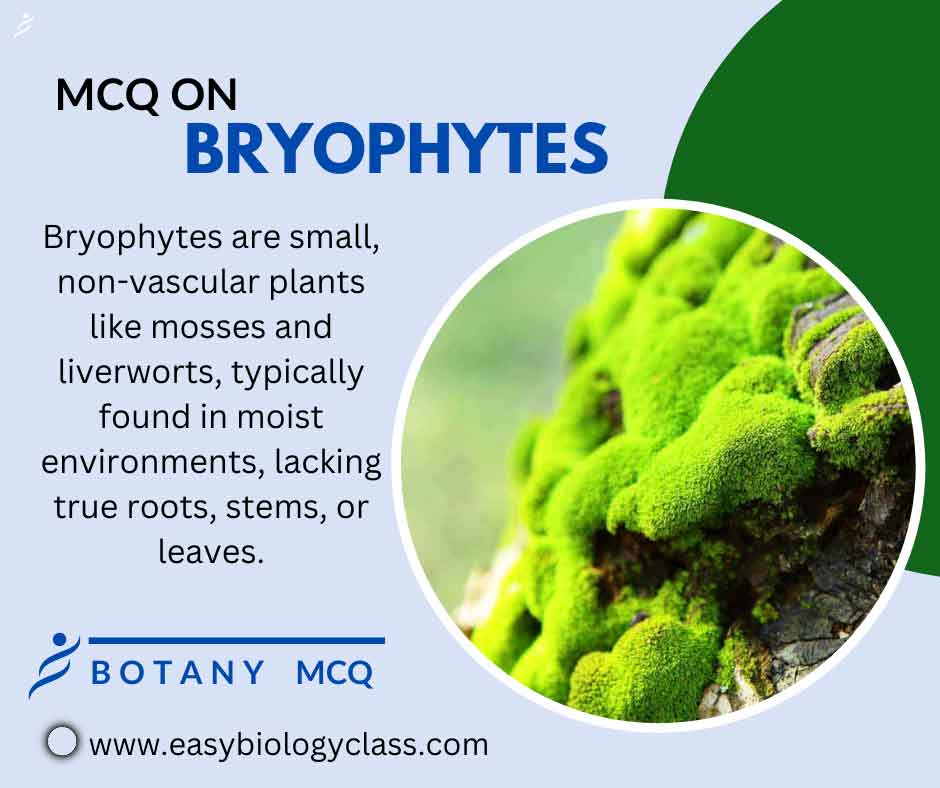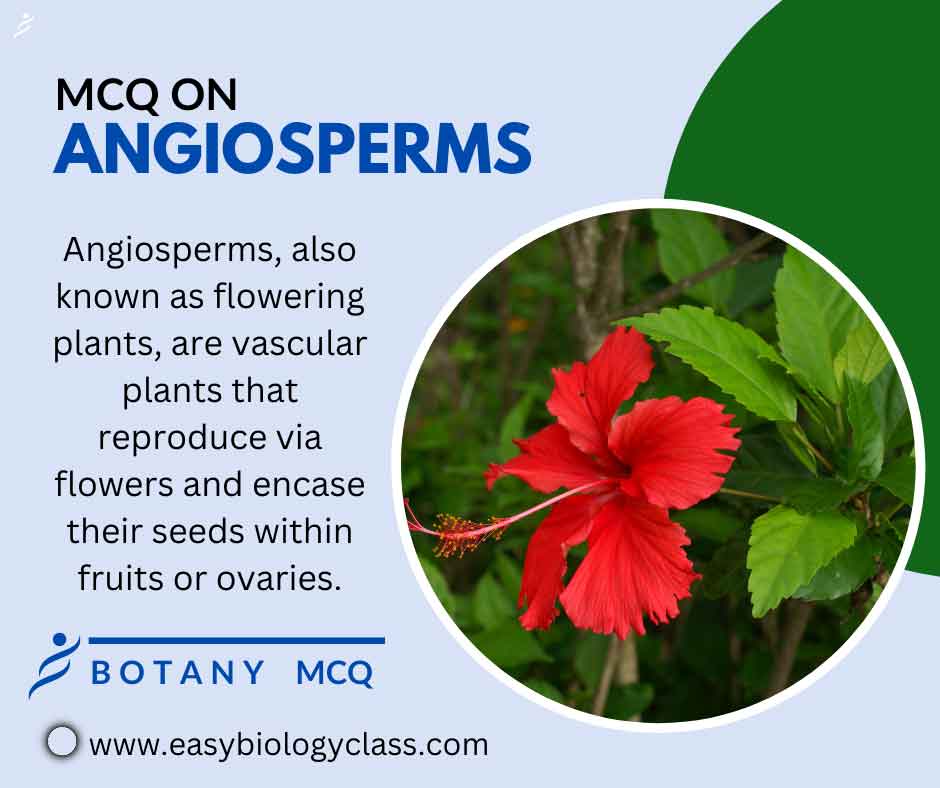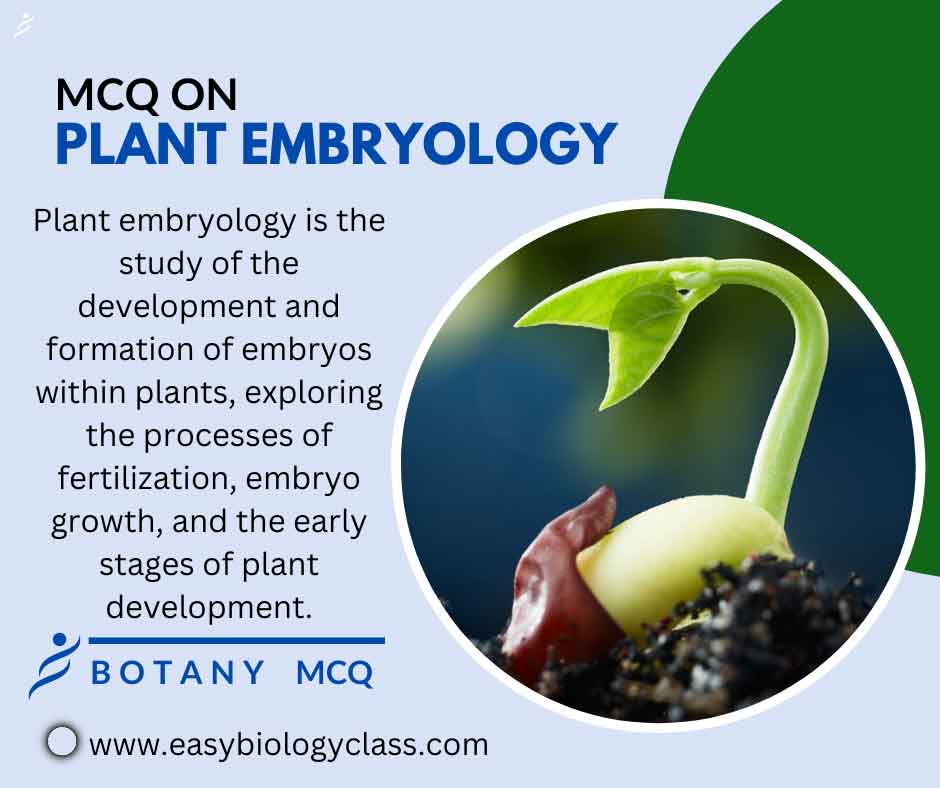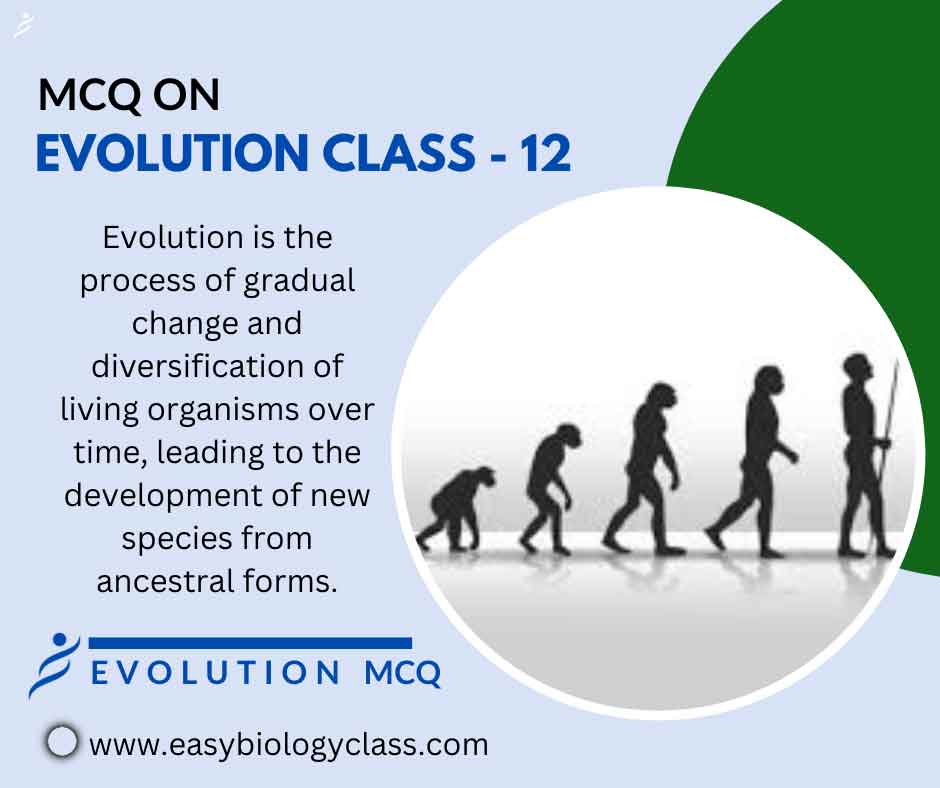Bryophytes are non-vascular plants including mosses, liverworts, and hornworts. They lack true roots, stems, or leaves and typically thrive in moist environments. These ancient plants play vital ecological roles as soil stabilizers and indicators of environmental health. This is an MCQ on Bryophytes and its life cycle. Botany Notes | […]
Continue ReadingCategory Archives: Biology MCQ
MCQ on Angiosperms
Angiosperms are flowering plants, encompassing a vast group of plants with enclosed seeds within ovaries (fruits). They dominate terrestrial ecosystems, exhibiting diverse forms and reproductive strategies, and play crucial roles in global ecology as primary food sources and providers of oxygen. This is an MCQ on Angiosperms. Botany Notes | […]
Continue ReadingMCQ on Plant Embryology
Embryology is the study of embryos’ development from fertilization to birth, encompassing cellular changes, tissue differentiation, and organ formation. It explores the intricate processes shaping an organism’s growth and morphological evolution before it emerges as a complete individual. This an MCQ on Plant Embryology. Botany Notes | Botany PPTs | […]
Continue ReadingMCQ on Algae (Phycology)
Algae are diverse, photosynthetic organisms found in water bodies. Ranging from microscopic to large seaweeds, they produce oxygen, serve as food for various aquatic life, and hold ecological importance due to their role in nutrient cycling. This an MCQ on Algae. Botany Notes | Botany PPTs | Botany MCQs <<< […]
Continue ReadingMCQ on Heredity and Evolution Class 10
Organic evolution is the process describing the gradual change in species over generations through natural selection, genetic variation, and environmental factors. It results in the adaptation and diversification of organisms, driving the development of biodiversity and new species. This MCQ on Heredity and Evolution Class 10 will help you to […]
Continue Reading




